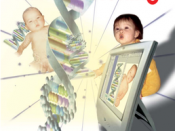Cloning: Is It Morally Wrong? The question shakes us all to our very own souls. For humans to consider the cloning of one another forces everyone to question the very concepts of right and wrong that make them all human. This topic has been controversial since it affects moral values of human beings and other living things alike. In February 1997, scientists in Scotland announced the birth of the first cloned sheep named Dolly. This lead the future of cloning possibilities and scientists began extensive experiments on cloning and have since then cloned both plants and animals successfully. The next step was to clone actual human beings but before experiments could have been carried out, pressure started to build on the scientists because people started to doubt if cloning was ethical and morally correct(www.cloning.com). Now that the idea of humans being cloned has started sounding less like a science fiction novel and more like a genuine possibility, cloning has its cons but its pros seem to overcome them greatly.
The cloning of any species, whether they be human or non-human, is ethically and morally wrong.
The possible physical damage that could be done if human cloning became a reality is obvious when one looks at the sheer loss of life that occurred before the birth of Dolly. Less than ten percent of the initial transfers survive to be healthy creatures. There were 277 trial implants of nuclei. Nineteen of those 277 were deemed healthy while the others were discarded. Five of those nineteen survived, but four of them died within ten days of birth of severe abnormalities. Dolly was the only one to survive (Cloning and the New Genetics, pg. 315). If those nuclei were human, "the cellular body count would look like sheer carnage" (The Clone Age, pg. 45).


